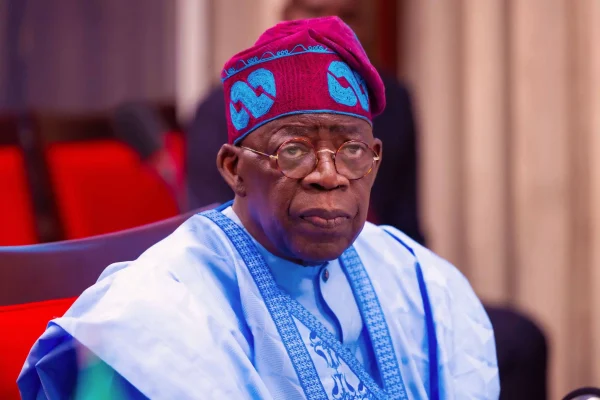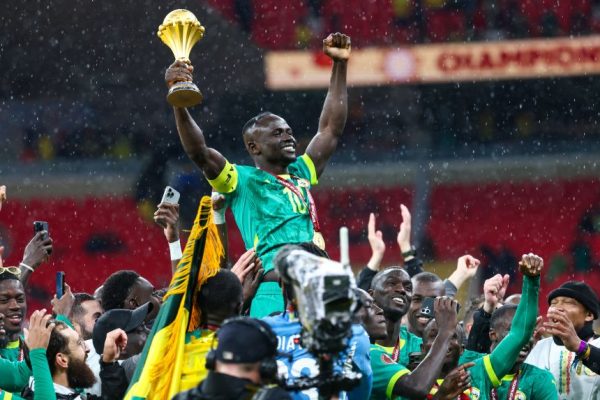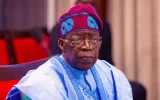by Saatah Nubari
In a situation where it is glaring that this present administration can only boast of support from the Ibos/Niger Delta/Middle Belt and is opposed by the Hausa-Fulani/Yoruba, you should be the Devil if you lie that there is no ethnic undertone to this. A closer look at the 7 governors and Atiku’s faction tells a lot.
The in-homogeneity of Nigeria was present long before now; it just took a minority ethnic group producing the president, and the 2015 elections to bring it to the fore. In 1914, Lord Lugard made the greatest mistake of his life, one I’m sure he would be turning in his grave for. When Lord Lugard decided to amalgamate the then Northern and Southern protectorate to form this current entity called Nigeria, he did it with the immediate interest of the British in mind, and never thought of the long term devastating effects on the new Nigerian nation.
In 1960, the British handed over administration and sovereignty to Nigeria without objectively tackling a death trap left behind by Lord Lugard, the same death trap that caused the Nigerian civil war. In 1914 when Lord Lugard amalgamated the two protectorates, he was only successful in changing the map of the British colony and nothing more. He failed to amalgamate the different ethnicities, groups and people who involuntarily found themselves in this new creation. This is the greatest miscalculation of Lord Lugard and the British government, and a blunder we might have to pay for, for the rest of our lives.
With the British granting Nigeria independence, our lack of homogeneity began to surface. There was the lack of trust gradually blooming among citizens of the different ethnicities, there was the fear of ethnic domination, and this was proved right when the Ibos were being massacred in the North. The reason of the discrimination of the Ibos in the North should and must not be unconnected with the fear of the Northerners that their success and increase in number might lead to an ethnic domination. Once again, the inability of the British to amalgamate these ethnicities before handing over, led to this breach of trust between every ethnic group in present day Nigeria. It took just 7 years for a crack to show, and this happened when the Ibos decided to break away from Nigeria.
In 1967, the Nigerian civil war began. This war is the closest we’ve gotten to ethnic unity/alliance, save for the 1993 and 2011 presidential elections. The war brought about the Hausa-Fulani/Yoruba alliance and is what has brought about the current Ibo/Niger delta/Middle Belt alliance. During the 3 years the war lasted, there was an obvious affinity between the Yorubas and their Hausa-Fulani counterpart. This coalition shouldn’t be mistaken for unity; instead it was rooted in economic and political interests and not born out of love for a unified Nigeria. It should be noted that in between this war was an oil rich region—the Niger Delta region, this region was included in the plans of the Biafrans and the Nigerian government couldn’t phantom the consequences of losing an economically viable region like that to the Biafrans, hence the alliance. A closer look at the war and you’ll notice that most Niger Deltans were not supporters of either side; they preferred the “sidon look” attitude, even if there were Niger Delta fighters on both sides of the divide. This was because they had yet to suffer any damage from any ethnic group in Nigeria hence their refusal to take a major step in showing support for either side.
Well the civil war was fought, and years later we still remain a geographically undivided entity. But let me make it bold to say that if oil had not been discovered in 1958, there might not have been an attempted Biafran breakup, and even if there was an attempt, there wouldn’t have been a civil war to stop them—it would have been a smooth sail for the Biafrans. The Biafrans took the loss very hard, but they licked their wounds waiting for a day to take their pound of flesh.
As the 2015 general elections draw nearer, we’ll see more cracks becoming visible; this is very much connected with a minority running in 2015. The most recent crack can be seen in the recent fractionalization of the PDP by Atiku Abubakar, Rotimi Amaechi and 6 Northern governors. It didn’t take long before the crack along ethnic lines was made obvious. This time like in the past one year, it came from the APC or should I say the PGF. Isn’t it funny that a party that has labeled the PDP as the problem of Nigeria, will release a statement praising the new PDP faction—they were close to calling them heroes. I’ll explain the ethnic divide and ethnic alliance in this recent development.
Let’s get deeper; first I’ll love you to answer a question. Which ethnic group(s) has criticized this present government more? Being truthful to yourself in answering this question will open your eyes to this ethnic divide and lack of trust. In a situation where it is glaring that this present administration can only boast of support from the Ibos/Niger Delta/Middle Belt and is opposed by the Hausa-Fulani/Yoruba, you should be the Devil if you lie that there is no ethnic undertone to this. A closer look at the 7 governors and Atiku’s faction tells a lot. We have an ethnic group not disposed to another ethnic group which is not their own occupying the office of the president. People might be of the opinion that “but Amaechi is a Niger Deltan”, here it comes, it all boils down to personal ambition on the part of Amaechi, unlike the 7 governors and Atiku who have their ethnic ambition in mind. Same MIGHT go for Mimiko who’s a supporter of Jonathan, thereby going against the ambition of his ethnic group. How about the PGF? That they have decided to work with this new PDP tells it all. The notion that “PDP is the problem” is just a clout for “we don’t want a Niger Delta/Ibo/Middle Belt to occupy the presidency” this again shows the in-homogeneity and lack of trust between ethnicities in Nigeria. Don’t be deceived by every political party claiming to be a progressive, It is not about what they want to do for Nigerians, it’s more of which ethnic group they think has the right to rule Nigeria.
Despite my unwillingness to apportion blame for the many cracks in the Nigerian state, I’ll say the mistake of the British was not just their amalgamation of a geographical area inhabited by un-amalgamated ethnicities; they took this mistake much further when they handed over this faulty amalgamation to un-amalgamated individuals on the 1st of October, 1960. There is no excuse for failure, so we shouldn’t bask in the euphoria of giving one. Long live the Federal Republic of Nigeria!
————————
Saatah Nubari tweets from @Saatah
Op-ed pieces and contributions are the opinions of the writers only and do not represent the opinions of Y!/YNaija.














Does it mean that all Jonathan’s critics are doing so based on their ethnic affiliations? According to you, even when it is glaring that certain policies of the present government are not particularly people oriented we should all keep mute and not criticise. So you can’t be from another ethnic group and criticize the government constructively? Very funny.
Well written, aptly presented. I will remained endeared to your ever articulate depositions. You’ve said the truth and rightly too. Sentiment won’t let them accept the truth, but it has been said already.
You have said it all. Those who have ear to hear let them hear. Whoever thinks that the exit of President Jonathan in 2015 will usher peace and prosperity are living in fools’ paradise.